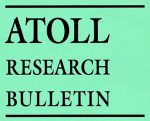Profile
Coral condition is one of the paramount guides to the future condition and trajectory of the Chagos marine environment in the present warming world. Specifically, I have lead a work package building a video archive of coral reef benthic community structure across depths at permanent monitoring sites throughout the atolls, for detailed analysis of the changes in communities. The rationale is that the videos provide a permanent reference and ‘bench mark’ for observing the effects of changing conditions in the absence of direct human impact. The video archive provides the opportunity to revisit sites in time to assess factors that have since become of note (eg. disease) and provides a visual baseline allowing newly engaged scientists to compare coral reef community structure in time.
Coral reef ecosystems owe their prodigious productivity to a symbiotic relationship between algal symbionts and their hosts, which has evolved over 250 million years under relatively stable conditions to a remarkable level of efficiency. Conditions are no longer stable, and that relationship is now the ‘Achilles heel’ of corals, and coral reef ecosystems are either going to change markedly or be lost. We do not know which outcome will be, but my hope is that we can still influence their trajectory such that we have resilient reef ecosystems in the future
Biography
My Project
Other interests
Current research is developed in partnership with end users (e.g. Commonwealth Office; Cayman Islands Government; Seychelles Island Foundation; The Nature Conservancy, USA). Recently, my research has focussed on coral reefs of the UK Overseas Territories, and research strategy is driven by the need to protect marine environments largely through the establishment and monitoring of Marine Protected Areas, or use of tools such as Environmental Impact Assessment and Coastal Zone Management, often to comply with the major conventions. Research is implemented through practical research overseas involving scientific diving operations, training, stakeholder consultations and outreach initiatives, often including placement of Project Support Officers to build capacity within organisations. I am a member of the DEFRA Darwin Initiative panel of the Darwin Plus Advisory Group for the British Overseas Territories, a member of the NERC Review College, a Trustee of Seawatch Foundation and Trustee of the Chagos Conservation Trust.
My Publications

Depth Variation in Benthic Community Response to Repeated Marine Heatwaves on Remote Central Indian Ocean Reefs
Sanassy Pilly, S., Roche, R.C., Richardson, L.E., Turner, J.R. (2024). Depth variation in benthic community response to repeated marine heatwaves on remote Central Indian Ocean reefs. Royal Society Open Science.

Atoll-Dependent Zonation in Benthic Communities on Remote Reefs
Sannassy Pilly, S., Richardson, L.E., Turner, J.T., Roche, R.C. (2022). Atoll-dependent zonation in benthic communities on remote reefs. Marine Environmental Research.

A Review of a Decade of Lessons From One of the World’s Largest MPAs: Conservation Gains and Key Challenges
Hays, G.C., Koldewey, H.J., Andrzejaczek, S., Attrill, M.J., Barley, S., Bayley, D.T.I., Benkwitt, C.E., Block, B., Schallert, R.J., Carlisle, A., Carr, P., Chapple, T.K., Collins, C., Diaz, C., Dunn, N., Dunbar, R.B., Eager, D.S., Engel, J., Embling, C.B., Esteban, N., Ferretti, F., Foster, N.L., Freeman, R., Gollock, M., Graham, N.A.J., Harris, J.L., Head, C.E.I, Hosegood, P., Howell, K.L., Hussey, N.E., Jacoby, D.M.P., Jones, R., Pilly, J.S., Lange, I.D., Letessier, T.B., Levy, E., Lindhart, M., McDevitt-Irwin, J.M., Meekan, M., Meeuwig, J.J., Micheli, F., Mogg, A., Mortimer, J.A., Mucciarone, D.A., Nicoll, M.A., Nuno, A., Perry, C., Preston, S.G., Rattray, A.J., Robinson, E., Roche, R., Schiele, M., Sheehan, E.V., Sheppard, A., Sheppard, C., Smith, A.L., Soule, B., Spalding, M., Stevens, G.M.W., Steyaert, M., Stiffel, S., Taylor, B.M., Tickler, D., Trevail, A.M., Trueba, P., Turner, J., Votier, S., Wilson, B., Williams, G., Williamson, B., Williamson, M.J., Wood, H. and Curnick, D.J. (2020) A review of a decade of lessons from one of the world’s largest MPAs: conservation gains and key challenges. Marine Biology.

Coral bleaching Impacts from Back-to-Back 2015-2016 Thermal Anomalies in the Remote Central Indian Ocean
Head, C. E., Bayley, D. T., Rowlands, G., Roche, R. C., Tickler, D. M., Rogers, A. D., … & Andradi-Brown, D. A. (2019). Coral bleaching impacts from back-to-back 2015–2016 thermal anomalies in the remote central Indian Ocean. Coral Reefs, 38(4), 605-618.

First Record of a Coralline Fungal Disease (CFD) in the Indian Ocean
Williams, G. J., Roche, R. C., & Turner, J. R. (2018). First record of coralline fungal disease (CFD) in the Indian Ocean. Coral Reefs, 37(4), 1243-1243.



